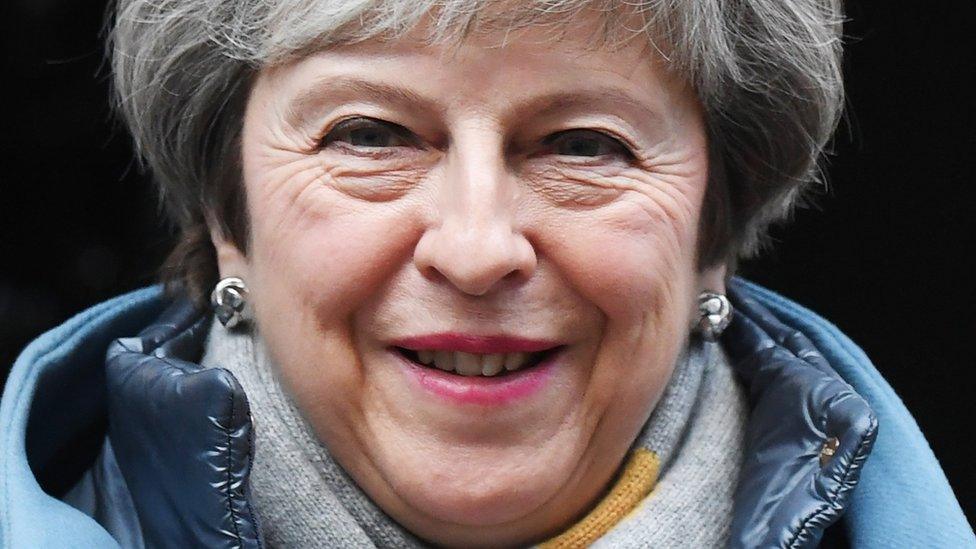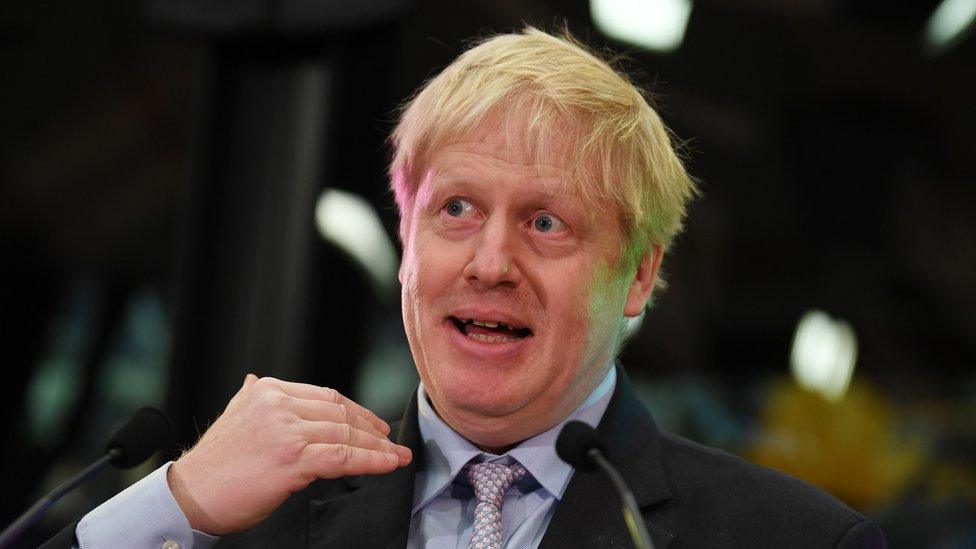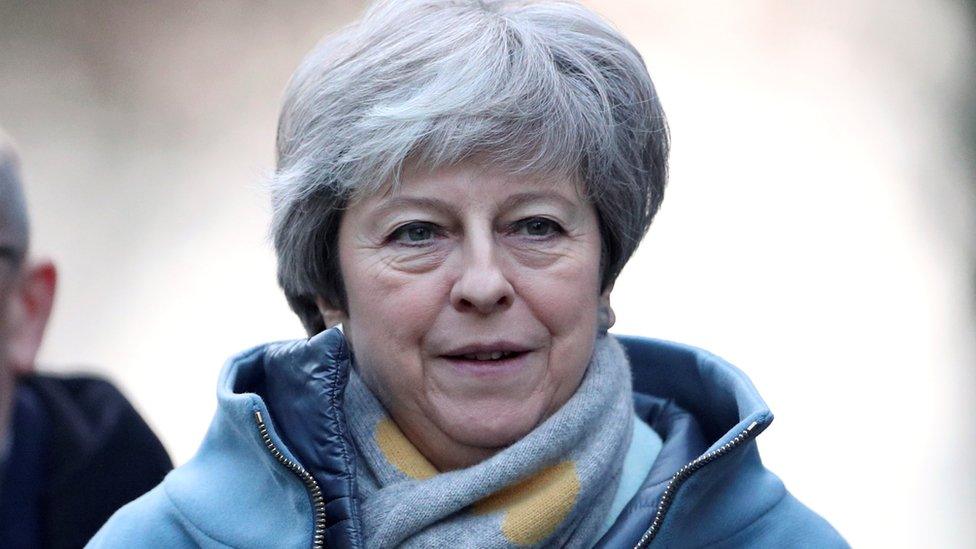Brexit: May boxed into comfort zone as options disappear
- Published

Isolated and apparently friendless, Theresa May is retreating to her natural comfort zone.
The prime minister is embarking on yet another push to see if she can win over Brexiteer Tories and the DUP to support an amended version of her Brexit deal.
A senior Tory tells me that May is acting on the advice of her chief whip, Julian Smith.
"The chief whip told the prime minister that if she relies on Labour votes to get her deal through she will split the party," the former frontbencher tells me.
"So she has to do it with Conservative and DUP votes. God knows how she does that."
Looking for ladders
Labour MPs have accused the prime minister of an irresponsible approach of putting party in front of country after she outlined her strategy in a cabinet conference call on Sunday.
The mood in Downing St appears to be pretty gloomy at the moment. But there are some signs of movement among Brexiteer Tories.
The senior Tory tells me: "The Brexiteers have over-reached themselves and are realising that their zealotry is endangering Brexit. So they need some ladders to climb down."
Ladders are not quite popping up around Westminster, but in the last 48 hours Jacob Rees-Mogg and Boris Johnson have both indicated they could be more flexible than they appeared in the immediate aftermath of last week's vote.
In a Mail on Sunday article, external, Rees-Mogg identified the Northern Ireland backstop and the UK's £39bn payment to the EU as the "biggest obstacles". But then he indicated that he could live with the prime minister's deal if the alternative was no Brexit.
In his weekly Daily Telegraph column, external on Monday, Boris Johnson did not repeat his call of last week for the UK to cut back on the £39bn payment. He instead focused entirely on the Northern Ireland backstop. This is the mechanism to avoid a hard border by binding Northern Ireland closely to the EU if the UK and Brussels fail to agree a future relationship in time.
The former foreign secretary wrote: "Take that backstop out, or at the very least give us a legally binding change - within the text of the agreement - that allows for the UK to come out of its own accord, and then we will be able to say that the agreement is imperfect but at least tolerable."

Mr Johnson gave a speech on his plans for Brexit at a JCB factory earlier in January.
So the prime minister could probably win over the two most prominent Tory Brexiteers on her backbenches if she managed to secure from the EU what she failed to achieve last year: a unilateral exit mechanism from the backstop.
Downing St is not holding its breath, even though Poland has indicated to the BBC that it supports a time limit to the backstop.
If a popular amendment on the backstop emerged from "clear blue sky" shortly before next Tuesday's Brexit vote, then the prime minister would be able to show the EU there is a deal that could pass, one Whitehall source says. But talks at Westminster will be held in the open well before next Tuesday, allowing the EU to "trash" such a proposal, according to my source - who says there is no sign that Brussels is backing away from its demand for an all weather backstop.
So there is little optimism in Downing St at the moment that the prime minister will eventually prevail. There appears to be a feeling that the prime minister is being buffeted by two forces: an EU which senses that Parliament might eventually take over, and a Parliament which looks increasingly likely to snatch decisive powers from the government.
"With the Speaker on the march there is probably little the government can do," one source laments.
You can watch Newsnight on BBC 2 weekdays 22:30 or on iPlayer. Subscribe to the programme on YouTube, external or follow them on Twitter, external.
- Published21 January 2019

- Published14 January 2019
- Published16 October 2019

